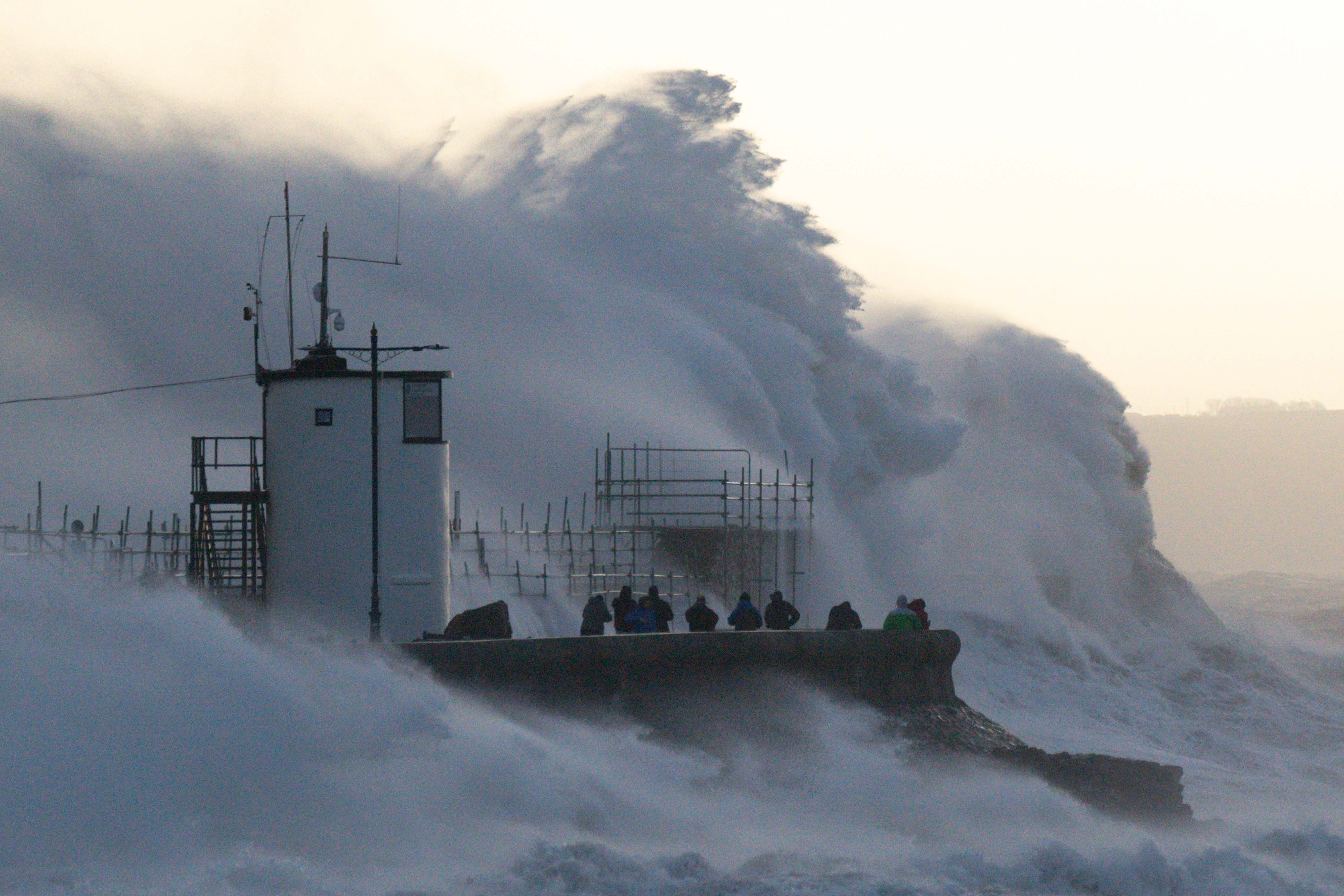Storm Eunice is yet another sign that Britain’s defences are inadequate
Editorial: Science tells us that storms, floods and droughts are likely to become more commonplace in the UK in future years – spending on resilience is one of the best investments a nation can make

Like the trajectory of a flying wheelie bin across the sky, opinions about Britain’s freakish weather are flapping wildly in the national conversation. Blowhard climate activists and climate deniers are taking the opportunity to use the storms to further their own arguments. The truth is more subtle, but also more disturbing than some of the more absolutist, instant “takes”.
True, there is no way of stating for certain, or “proving”, that Storm Dudley and Strom Eunice are specifically “caused” by climate change. Indeed such an assertion doesn’t make much sense, either way, because climate change is a generalised, planet-wide phenomenon, and in that sense “causes” all kinds of weather, pleasant and otherwise. The British Isles have faced great storms many times, and they predate the industrial era.
Nonetheless, we know that the climate crisis is real and it is generating more frequent strange and extreme weather events across our fragile planet. There is also no doubt that the severe wind and rains now battering parts of Britain and the rest of Europe are unusual. There is no reason, either, to doubt that they may well have been exacerbated, if not caused, by the advent of anthropological climate change – examples of an increasing frequency of freakish episodes.
Britain’s weather is historically, mostly, predictable and moderate and its climate temperate, but recent years have seen a greater preponderance of extreme weather. According to the Meteorological Office, 2020 was the first year on record to figure in the top 10 for heat, rain and hours of sunshine. We also have the record droughts in Australia, Siberia on fire, unprecedentedly violent hurricanes in the Caribbean and America, and melting ice caps to reflect upon as we huddle indoors and watch the television reporters trying to hold their balance.
Whatever else, such events are not going to go away, and the science tells us that storms, floods and droughts are likely to become more commonplace in the UK in future years. This, then, reinforces the familiar and forceful case for action on the climate crisis, as was agreed, albeit inadequately, at the Cop26 conference. It also underlines the impatience of resilience in the national economy and its infrastructure. At a time when the west faces the possibility of armed conflict erupting again in Europe, Britain and other countries should not be weakened in their response and distracted by extreme weather events.
To keep up to speed with all the latest opinions and comment sign up to our free weekly Voices Dispatches newsletter by clicking here
Time and again over recent decades Britain has shown itself underprepared for extreme weather effects. The most recent crises have been in communities in the north of England and Scotland where power supplies and telecoms have been disrupted and not restored for unacceptable periods of time. The various utility companies certainly seem to be have been unresponsive to the basic needs of their customers for light and warmth in the winter months. As part of their contract of service and freedom to operate as private enterprises, they should be made to guarantee resumption of service.
Much the same can be said of flood defences. In too many parts of the west and south of England, periodic flooding is accepted far too readily as a fact of life. Only London, tellingly, has solid defences against mass flooding (and even the Thames Barrier may be inadequate if sea levels rise as fast as some suggest). Too many flood defence programmes were scaled back or cancelled during the austerity of the last decade, and it was a false economy, as we shall no doubt witness again.
Though it has attracted little attention, the government is undertaking a review of national resilience, “learning the lessons”, as the bureaucratic cliche goes, of the Covid pandemic as well as multiple extreme weather events and cyberattacks on vital national digital infrastructure, such as the extremely damaging and life-threatening WannaCry ransomware attack on the NHS.
From acts of God to pandemics to cyberattacks by hostile states, the British people are not as well defended as they should be – with demonstrable risks of loss of life and damage to property and the economy. Spending on resilience is one of the best investments a nation can make, and Britain has been far too neglectful of it. These extraordinary gales should serve to blow some of the cobwebs away.
Join our commenting forum
Join thought-provoking conversations, follow other Independent readers and see their replies
Comments
Bookmark popover
Removed from bookmarks